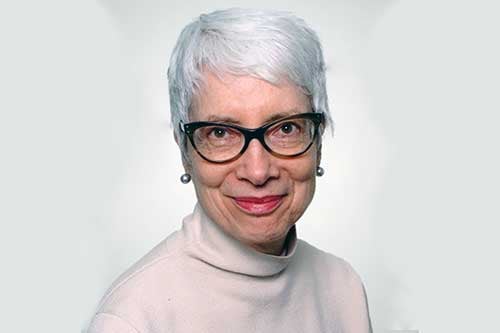

Greater London Mutual chair Kathryn Kerle (pictured), who also serves as regional director of the London chapter of the Professional Risk Managers’ International Association (PRMIA), has been in the thick of things. With her nearly four decades of experience also spanning Asia, Sydney, and New York, Kerle has just about seen it all.
Here the PRMIA regional director talks to Corporate Risk and Insurance about learnings, priorities, and the “fascinating” aspects of risk management.
What brought you to the world of risk management, and what made you stay?
I began my career in banking as a trainee at The Chase Manhattan Bank. The management development programme focused on credit risk management, the major focus of risk management at the time. In my subsequent role at the bank as a credit and marketing officer, credit risk assessment was part of the job. I found it inherently interesting – it required both qualitative and quantitative analytical skills and was endlessly varied, and over time it became my major area of focus.
Of all the roles you’ve played, which has been the most challenging?
Most roles have had intensely challenging moments, generally at times of market upheaval. Credit is inherently unstable. The essence of credit risk is the exchange of an asset for a promise of its safe return (plus interest). If the asset owner loses confidence in the ability or willingness of the recipient to return that asset in full and on time, panic often ensues. And in moments of panic, everyone heads for the exits at the same time.
Things you thought were unrelated turn out to be closely intertwined; verities you thought were unquestionable turn out to be mere assumptions. You then need to assess how your own business might be affected and what steps you need to take to protect it, at a time when nothing at all is clear and anything might happen. I experienced this as a credit and marketing officer at The Chase Manhattan Bank, during the sovereign debt crisis; at Moody’s during the Asian crisis, during the dot-com bust, and again during the 2008 crisis; and at RBS during the Eurozone crisis.
How about the most exciting?
Possibly the most exciting was my first. I was still at The Chase Manhattan Bank, working as a credit and marketing officer in the Middle East area. My portfolio consisted of correspondent banks in about half a dozen countries, one of which was Iran. The Iranian revolution had just taken place and Chase, which had two branches located in the country, was trying to recover its assets.
Needless to say, relations with Iran were tense. Negotiations had been stalled at the Hague tribunal for years and no way forward was apparent. However, the week I was asked to assume responsibility for the portfolio, the Iranians announced they wished to enter into bilateral negotiations. As a result, I spent the rest of the year supporting the head of the bank’s international department in our negotiations with our Iranian counterparts. It was fascinating.
One of the many things I learned was this: when a loan goes bad, you find out what the problems with your documentation are.
What are your priorities as regional director of the PRMIA London chapter?
Our goal as a chapter is to improve the quality of risk management in our region. We do so in a few key ways: holding events for practitioners on current risk topics; providing a forum for senior risk leaders to discuss areas of concern; supporting university students interested in learning more about risk management; working with other professional associations to increase the range of events available to our respective members; and hosting an annual conference on current risk topics for senior risk leaders in the UK and Europe.
In the process, we provide as many opportunities as possible for our members to meet and learn from other risk professionals.
What piece of advice would you give risk managers?
I think risk management is an area where experience is a distinct advantage. The most expensive words in the English language are, “It’s different this time.” It’s not.
